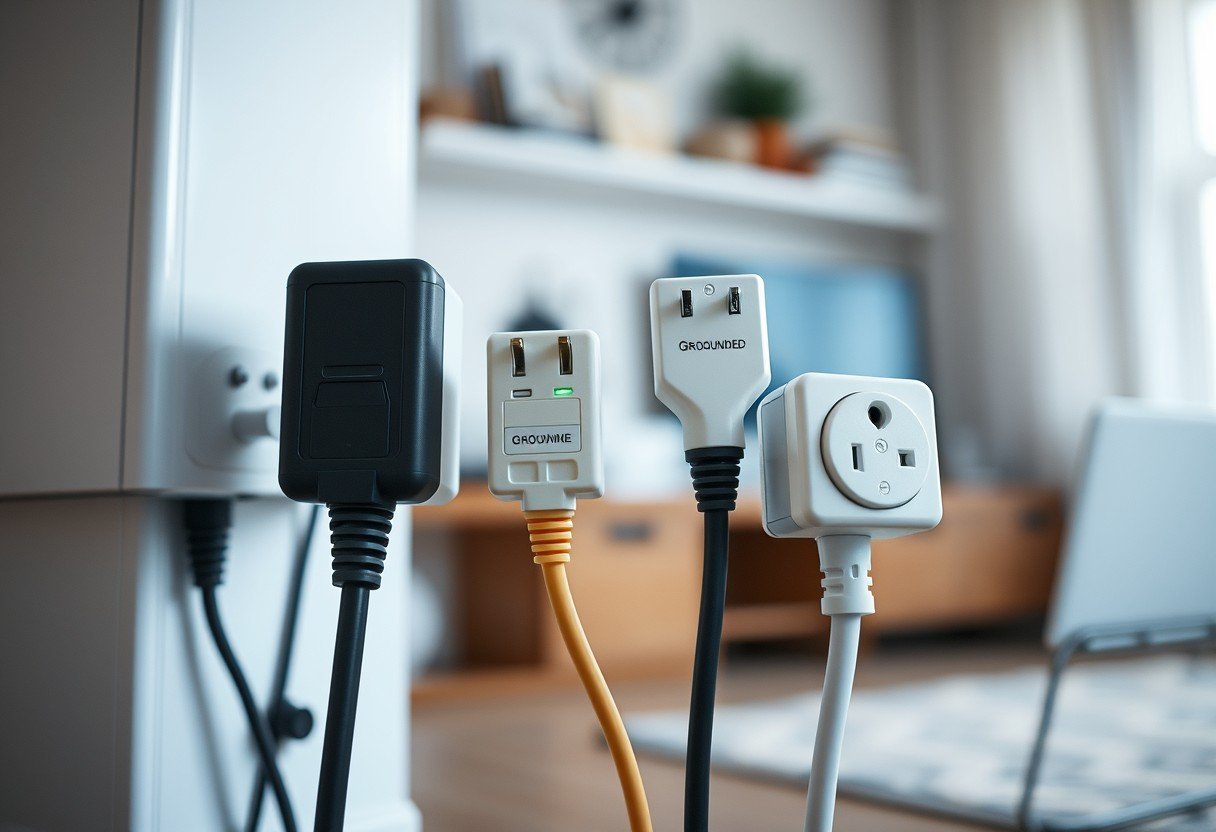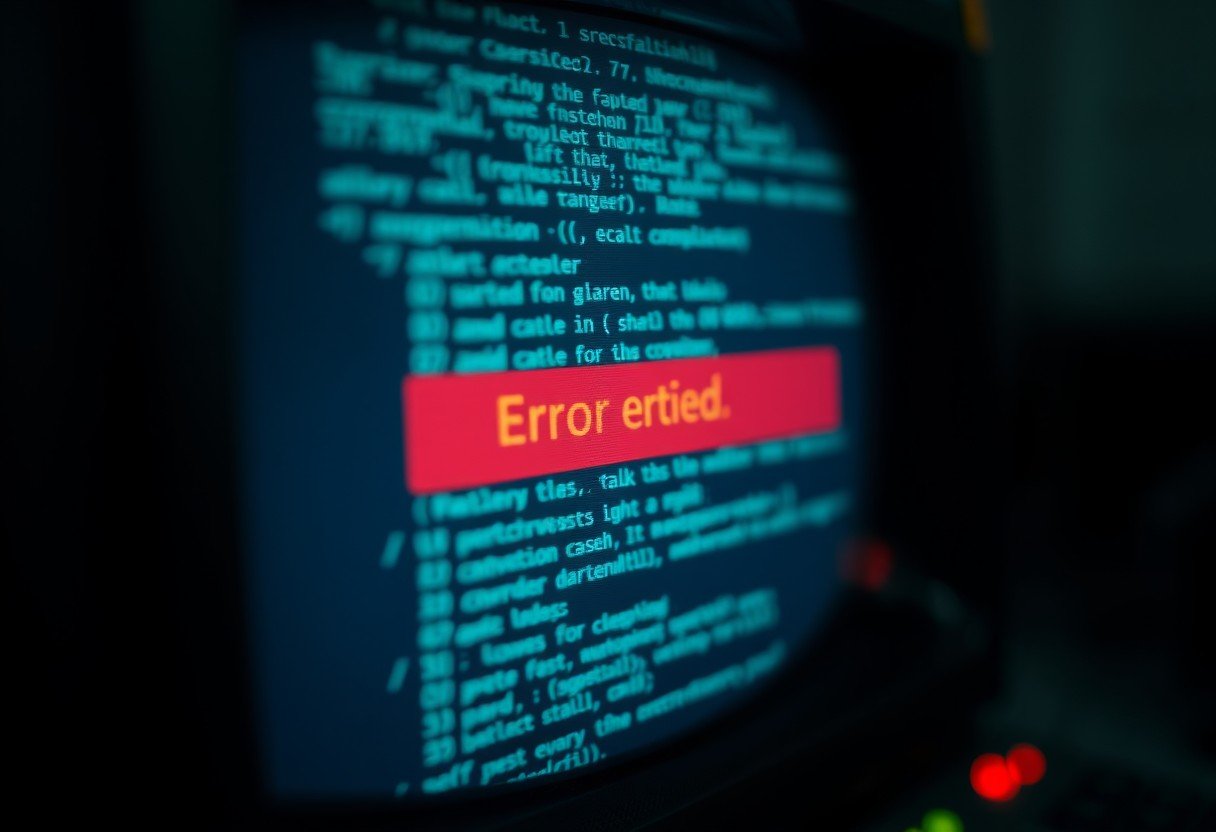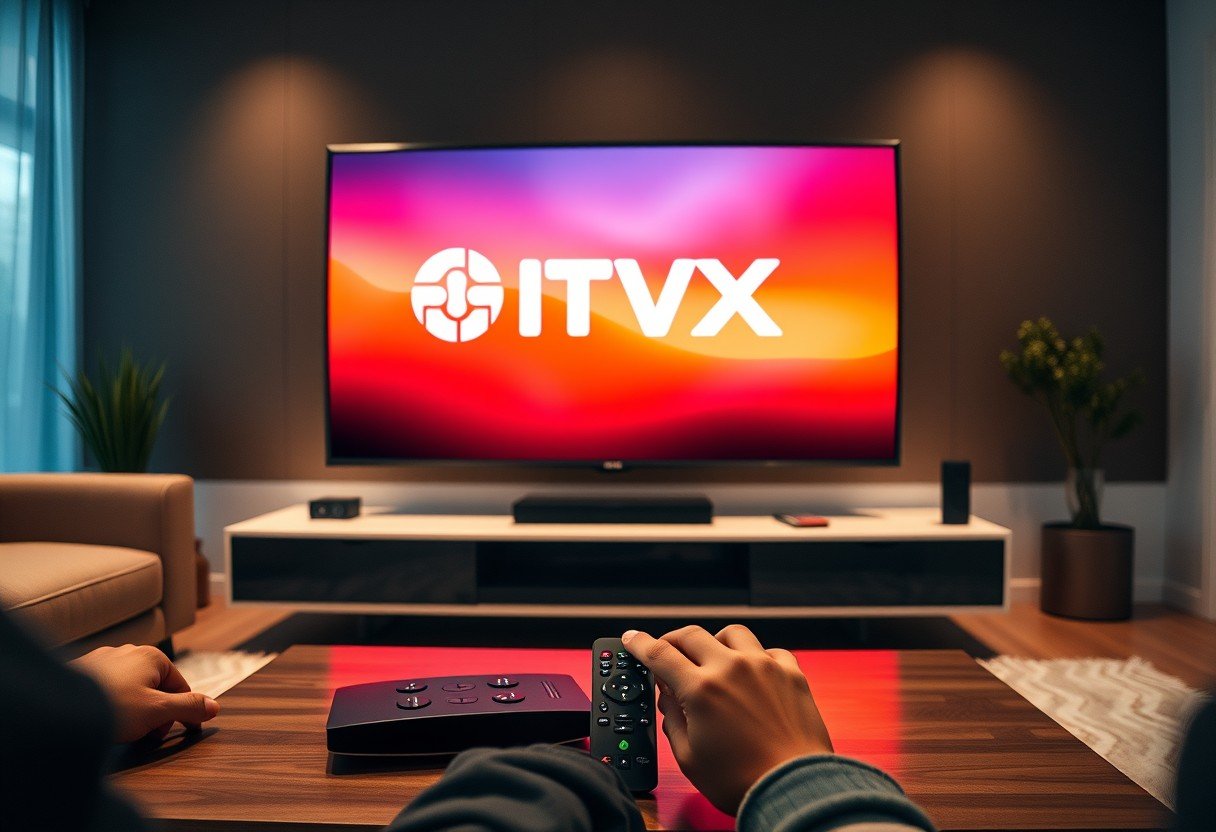Grounded power sources are important for safety and effectiveness, especially when using electrical devices in your home or workspace. If you rely on extension cords, you may wonder whether they provide proper grounding for your equipment. In this post, we’ll explore the grounding capabilities of extension cords, explain how to identify whether yours is grounded, and discuss the potential risks of using ungrounded cords. Understanding this aspect of your electrical setup is crucial for ensuring your safety while using various appliances and tools.
Key Takeaways:
- Grounding: Not all extension cords are grounded; it’s necessary to check if the cord has a third prong for grounding.
- Safety: Using an ungrounded extension cord can increase the risk of electrical shock and fire hazards.
- Types of cords: Heavy-duty extension cords are more likely to be grounded, while lightweight cords often are not.
- Usage: Always use grounded extension cords for powering outdoor equipment or devices that require higher wattage.
- Replacement: If your extension cord is not grounded or shows any signs of damage, it’s crucial to replace it immediately for safety.
Understanding Grounding
For safe and effective electrical systems, grounding provides a critical pathway for electricity to flow back to the earth. By directing excess electricity, including surges and faults, to the ground, it helps to protect both you and your devices from electrical hazards. A well-grounded system minimizes the risk of electrical shocks, improves device performance, and ensures compliance with safety standards.
Definition of Grounding
With grounding, you create a direct electrical connection to the earth, which stabilizes voltage levels and helps prevent the buildup of excess charge. This connection typically involves a grounding conductor that securely links electrical systems to a grounding electrode, such as a ground rod buried in the earth.
Importance of Grounding in Electrical Systems
Importance of grounding cannot be overstated, as it serves as a safety net for your electrical installations. Proper grounding safeguards both your devices and your well-being by directing stray voltages away from you and your equipment during faults or surges.
Understanding the importance of grounding in electrical systems is crucial for both safety and functionality. Without grounding, you expose yourself to the risk of electric shock, equipment damage, and fire hazards. Moreover, proper grounding helps ensure that your electrical devices operate efficiently, reducing the chances of malfunctions. By grounding your electrical systems, you provide a layer of protection that is fundamental to creating a secure and reliable environment for your electronic devices.
Types of Extension Cords
Any extension cord serves a specific purpose, and it’s crucial to understand the various types available to ensure safety and efficiency. Here’s a quick summary of common types:
- Light-duty cords
- Medium-duty cords
- Heavy-duty cords
- Outdoor cords
- Specialty cords
Recognizing the type of extension cord you need can prevent accidents and enhance your device’s performance.
| Light-duty cords | Best for smaller appliances and indoor use. |
| Medium-duty cords | Suitable for moderately powered equipment. |
| Heavy-duty cords | Designed for high-demand tools and outdoor usage. |
| Outdoor cords | Built to withstand weather elements and moisture. |
| Specialty cords | Customized for unique applications. |
Grounded vs. Ungrounded Extension Cords
Grounded extension cords have a third prong that connects to the ground, providing an additional layer of safety. This feature prevents electrical shock and short circuits, making them ideal for high-powered devices. Ungrounded cords lack this feature and should only be used for low-power appliances.
Identifying Grounded Cords
Grounded extension cords are easy to identify by their three-prong plug design.
To further identify grounded cords, look for a plug with one prong wider than the other, along with a third round prong that connects to earth ground. This design is crucial for safety, especially when using devices with metal cases. If you’re unsure, always prioritize safety by opting for grounded extension cords when using high-powered or outdoor equipment.

Safety Standards and Regulations
All extension cords must comply with safety standards and regulations to ensure their safe use. These standards help prevent electrical hazards and protect both users and their property. Familiarizing yourself with these regulations is crucial for maintaining safety in your electrical setup, particularly if you rely on extension cords frequently.
National Electrical Code (NEC)
National standards set forth by the National Electrical Code (NEC) outline the requirements for the installation and use of electrical equipment, including extension cords. By adhering to NEC guidelines, you can enhance safety in your home or workplace environment, ensuring your cords are reliable and secure.
Underwriters Laboratories (UL) Certification
To ensure safety and quality, look for extension cords that carry the Underwriters Laboratories (UL) certification mark. This certification indicates that the product has been tested and meets strict safety standards, reducing the risk of electrical fires and shocks.
A UL-certified extension cord undergoes rigorous testing for performance under various conditions, including temperature and load capacity. By choosing cords that are UL-listed, you can have confidence in their reliability and safety. Always check for the UL mark and ensure that your extension cords meet these important safety requirements to protect yourself and your property.
Proper Use of Extension Cords
To ensure the safe and effective use of extension cords, always follow the manufacturer’s instructions and avoid overloading them. Extension cords are designed for specific voltage and current ratings, so it’s crucial to use them appropriately. Keep cords away from heat sources, moisture, and areas where they may be damaged. Additionally, you should regularly inspect your cords for frays or damage and replace them as needed to maintain safety and functionality.
Choosing the Right Cord for the Job
An necessary part of using extension cords safely is selecting the correct type for your needs. Consider the length, gauge, and number of outlets you require, as well as the specific electrical devices you plan to connect. For high-wattage appliances, opt for heavier gauge cords to minimize the risk of overheating and ensure safe operation.
Situations Requiring Grounded Extension Cords
Proper use of grounded extension cords is critical in specific situations, particularly when using power tools or appliances that require additional safety measures.
This includes using extension cords with ground protection when you’re operating outdoor power equipment, in damp environments, or for high-powered devices like refrigerators and air conditioners. Grounded cords help prevent electrical shock by providing a pathway for stray current to safely discharge, reducing your risk of injury. Moreover, always adhere to local electrical codes and regulations to maintain a safe working environment.
Risks of Using Ungrounded Extension Cords
Now, while extension cords are convenient for powering your devices, using ungrounded versions poses significant risks to both your safety and property. These risks can lead to electrical hazards, including shocks and fires. You need to understand the implications of relying on ungrounded cords, as they lack critical safety features designed to protect you from dangerous electrical faults.
Electrical Shock Hazards
Ungrounded extension cords increase your risk of electrical shock, as they do not provide a safe pathway for excess electricity to flow back to the ground. Should an electrical fault occur, you could become the path of least resistance, leading to serious injury or even death. Ensuring your extension cords are properly grounded is imperative for your safety.
Potential for Equipment Damage
Using ungrounded extension cords can also cause significant damage to your sensitive electronics. Without proper grounding, your devices may be vulnerable to power surges, which can lead to malfunctioning or total failure.
It’s crucial to recognize that ungrounded cords lack the ability to divert excess voltage away from your equipment. If a surge occurs, your devices may not only stop working but might also incur repair costs or require complete replacement. To protect your investment, always opt for grounded extension cords whenever possible, ensuring your electronics remain safe from unexpected power surges.
Maintenance and Care
Not all extension cords are created equal, and proper maintenance is crucial for safety and longevity. Regularly checking your cords for signs of wear and damage can prevent potential hazards. Always ensure that you store your cords properly when not in use to maintain their functionality.
Inspecting Extension Cords
For optimal performance, you should inspect your extension cords regularly. Look for any visible frays, bends, or exposed wires that could pose a safety risk. If you notice any damage, it’s best to replace the cord rather than to continue using it.
Best Practices for Storage
Care is imperative when it comes to storing your extension cords. Always wind them loosely and avoid sharp bends to prevent damage. Utilize hooks or reels for organization, and keep them in a dry place to minimize exposure to moisture, which can lead to electrical failures.
Inspecting your extension cords during storage is just as important as before use. Ensure they are free from tangles to avoid damaging the insulation, and never store them while they are still warm from use. Additionally, keeping your cords away from direct sunlight and extreme temperatures will help maintain their integrity, ensuring they last longer and operate safely when needed.
To wrap up
On the whole, understanding whether extension cords are grounded is imperative for ensuring your safety and the proper functioning of your electrical devices. While many modern extension cords come equipped with grounding features, it’s crucial that you always check the specifications before use. This way, you can avoid potential hazards related to electrical overload or shock. By being informed and vigilant, you can make safe choices that protect both your equipment and your home.
FAQ
Q: Are all extension cords grounded?
A: No, not all extension cords are grounded. Extension cords can come in both grounded (three-prong) and ungrounded (two-prong) versions. Grounded extension cords have a third prong that connects to the ground, providing an additional safety feature by preventing electrical shock and reducing the risk of electrical fires. Ungrounded cords lack this third prong and are typically used for devices that do not require grounding.
Q: How can I tell if my extension cord is grounded?
A: To determine if your extension cord is grounded, look for a three-prong plug at the end of the cord. The third prong is typically longer and rounder than the other two. Additionally, most grounded extension cords will have a grounding terminal along the plug, which is designed to connect to a grounding source. If the cord has only two prongs, it is ungrounded and does not provide the same level of protection.
Q: When should I use a grounded extension cord?
A: You should use a grounded extension cord for high-power appliances and tools that require grounding to operate safely, such as refrigerators, power saws, or other major electrical devices. Grounded cords provide an additional layer of protection against electric shocks and can help dissipate any electrical surges. For smaller appliances or devices that are double insulated, an ungrounded extension cord may suffice.
Q: What are the risks of using an ungrounded extension cord?
A: Using an ungrounded extension cord can pose several risks, especially with high-powered devices. Without grounding, there is an increased risk of electric shock if a fault occurs, as the safety mechanism to direct excess electricity to the ground is absent. Additionally, ungrounded cords may not adequately handle surges or spikes in electricity, leading to potential device damage or increased fire risk.
Q: Can I convert an ungrounded extension cord to a grounded one?
A: It is not advisable to convert an ungrounded extension cord to a grounded one by simply adding a third prong or modifying the cord. Doing so may not provide proper grounding and could create hazardous conditions. Instead, the best solution is to purchase an extension cord that is designed to be grounded. Always ensure that the cords meet safety standards and are suitable for the devices you intend to use them with.








Leave a Comment